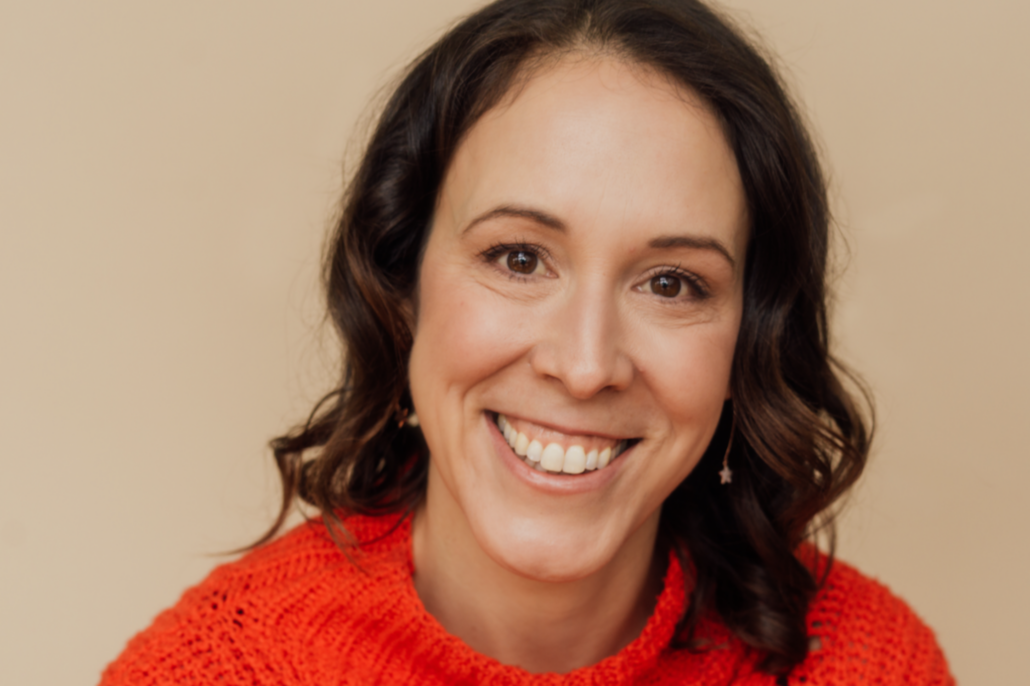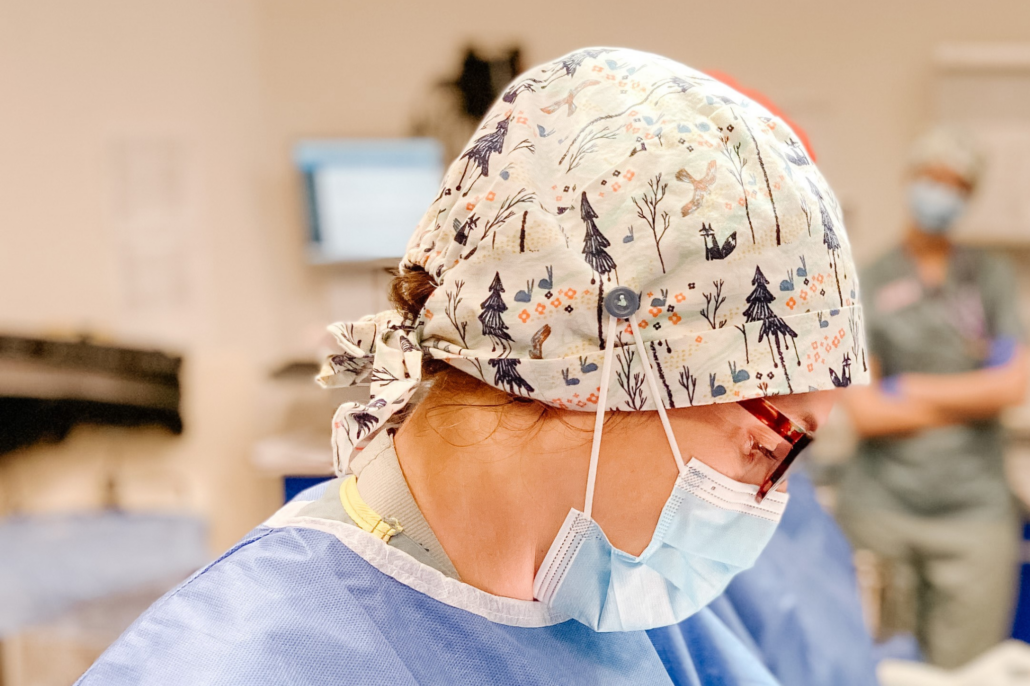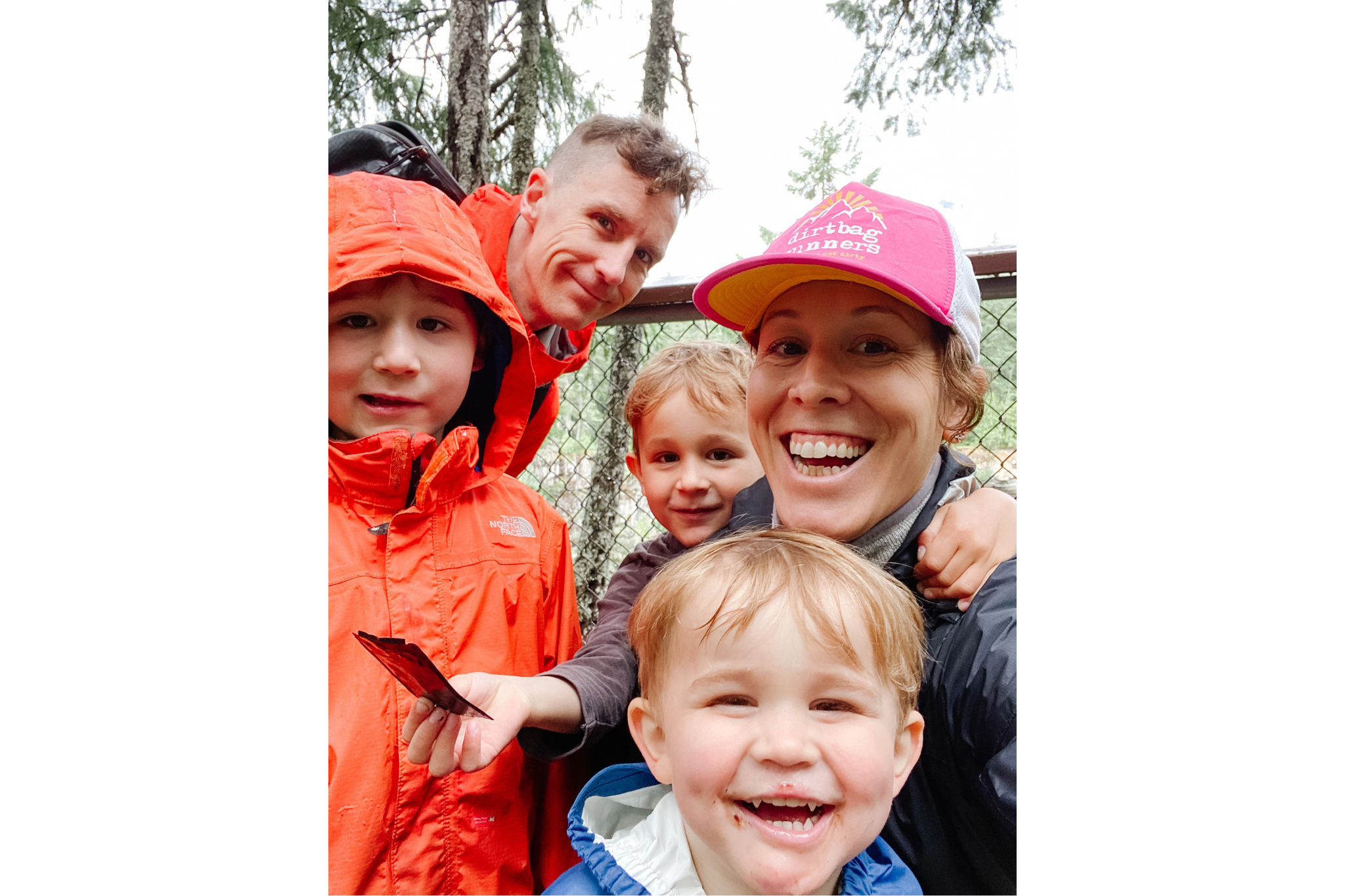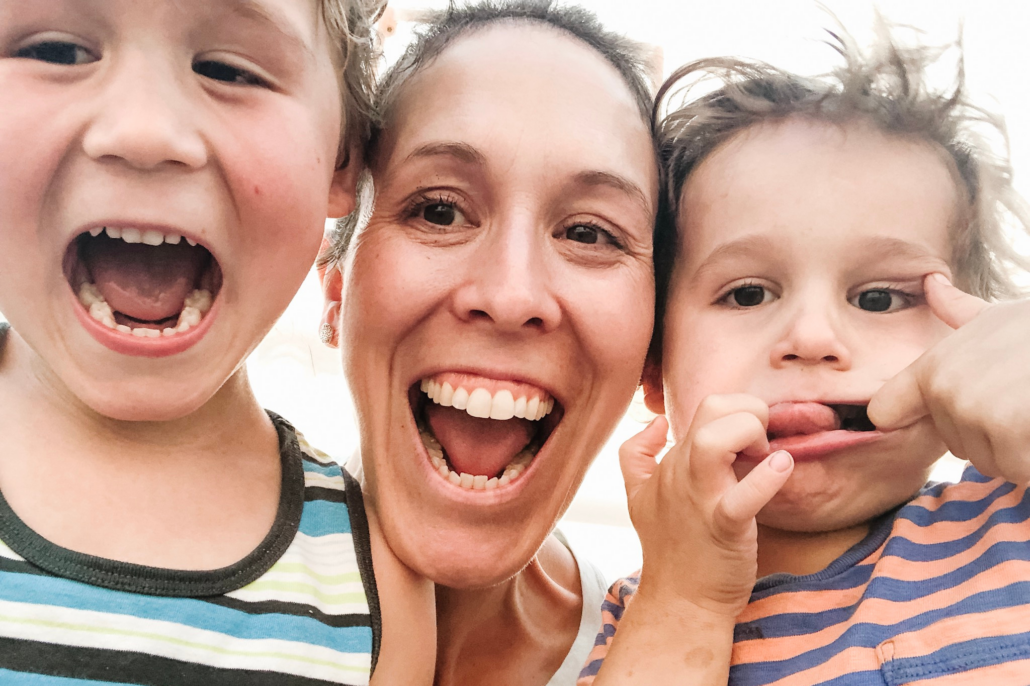
Dr. Sarah Lea:
Perinatal Addiction Lead and Outgoing GEO 4 GP Obstetrics Division Head, Island Health; advocate, future coach, nature-lover, wife, mother, human
I’m originally from Prince Edward Island, and I came out to the University of British Columbia to do my OB/GYN residency and be close to my brother and his family. I planned to go back to Dalhousie University, where I attended medical school, to do a fellowship in maternal fetal medicine.
Well, that didn’t happen. I met my husband, who is also a family physician, and I realized I wanted more balance in life, and more control over where I lived and the type of work I did, so I switched into family medicine.
I got six months of credit for the two and a half years that I had already done in my OB/GYN residency, so I had to complete another 18 months to complete my family medicine residency. Then, somewhat unexpectedly, we started our family and I had two babies within that 18-month period—so I didn’t actually graduate until 2016. I spent several years doing locum work as a family physician, and welcomed one more little one into the world.
After I had my third baby, I decided to do some additional addiction medicine training and, in the summer of 2018, I moved with my three young boys (who were eight months, and three and four years old) to Vancouver for two months to do addiction and perinatal addiction medicine training. Looking back, I have no idea how I did it!
Today, I’m a family physician with sub-specialized training in both maternity care and addiction medicine, and I have a board certification in both family medicine and addiction medicine.
“I met my husband, who is also a family physician, and I realized I wanted more balance in life, and more control over where I lived and the type of work I did, so I switched into family medicine.”
“I’ve become so passionate about advocating for women and supporting them to have as healthy of a pregnancy as they can, and to help them fight the devastating disease of addiction and keep their babies. To stop the cycle of harm.”
I’d always had an interest in addictions, and I have been passionate about women’s health and obstetrical care since the very beginning of my medical training. And then, when I had my own children, I just thought: if anyone ever tried to take my children away—I just couldn’t imagine the pain and suffering that would cause. I’ve become so passionate about advocating for women and supporting them to have as healthy of a pregnancy as they can, and to help them fight the devastating disease of addiction and keep their babies. To stop the cycle of harm.
In a way, I hate the word “resilient.” When I think of the women I work with, the perinatal substance use population, I just think about how they shouldn’t have to be resilient, but they are. They are just so strong, and there’s so much fear and trauma that they have to overcome just to access our services and to access healthcare. They fight every day, and many of them are successful.
I’m just so inspired by these women because I find parenthood hard a lot of the time, and I’m a physician who is married to a physician, with basically everything I could ever possibly want or need. I think, as long as you are aware of your privilege, you can use that for good and affect positive change.
And then there’s just trying to take care of myself. I’m really passionate about personal growth and development, including meditation and mindfulness. I’m actually pursuing a coaching program this fall through Royal Roads University, so that I can coach physicians to learn how to take care of themselves and prioritize their needs. I want to change the culture of medicine. I was addicted to the work in my early years of training and, you know, talking with my fellow residents about how many hours we worked when I was in the surgical OB/GYN residency. It’s so ironic: you’re in a healing profession, yet you’re not taking care of yourself, not taking breaks—you’re just sacrificing yourself.
I think change starts with physicians who are mentoring learners—when they say it’s OK to choose a specialty where you can balance, or work part-time. We want to take care of ourselves and our families. I think we really need to normalize and prioritize self-care in medicine.
I try to meditate most days, and move my body. Right now, I’m doing a lot of strength training to get back into trail running. I just love being outside. The older I get, the more I realize that nature is healing. It just helps you let go and decompress. That’s a big reason why I’ve started meditating more, so that I can be present with my children, instead of thinking about all the things I have to do.
“My family is my biggest passion outside of my work. I spend a lot of time outside with my kids, and we love going for hikes and being active through swimming, skiing, and biking”
“There is still such stigma around mental health, especially amongst healthcare professionals. We need to end the stigma and normalize the suffering we all experience at some point throughout our journey.”
When I went into medicine, I wanted to help people and vulnerable populations. I have some history of addictions and mental health in my family, and I just saw how important it was for them to have support. I wanted to be able to offer that to people who might not have family support behind them.
Every time I see a postpartum mom or parent with their baby in the community, and just seeing them flourish, it’s amazing. Parenting is super hard, but they’re doing it. Every time I engage with women who have had success, it just encourages me to keep going because we have a lot of folks who just aren’t ready. And we have to be OK with success that maybe looks like someone simply accessing prenatal care and having their baby in a safe setting, but not having the ability to parent them. But it’s those cases where you do see the babies with their moms and families that is so rewarding, because we are stopping that cycle of harm and keeping families together.
They are humans first, who put other humans first.
More than 8,900 caregivers and staff work around the clock in our Victoria Hospitals
#HumansFirst is dedicated to sharing the stories from behind our hospitals’ frontlines. These stories remind us that those who provide care and keep the lights on in our hospitals also have lives outside of them. They have family and friends, they enjoy hobbies and interests, and they have all lived through their own personal triumphs and heartbreaks. Like all of us, they are human, and they have a story to tell.








